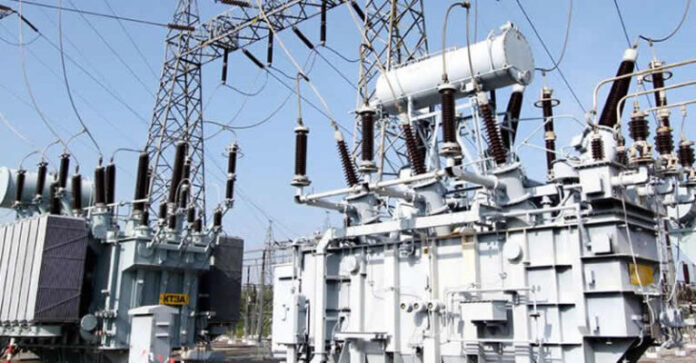In a significant development for Nigeria’s power sector, the Federal Government has confirmed that the country’s power grid is now stronger and more stable than in previous years. This improvement is largely due to the successful addition of 700 megawatts to the grid’s transmission capacity. The announcement came over the weekend from the Minister of Power, Adebayo Adelabu, during a meeting in Abuja with the European Union Ambassador to Nigeria, Gautier Mignot.
A statement issued on Sunday by Bolaji Tunji, who serves as the media aide to the minister, revealed that this upgrade was achieved through the Presidential Power Initiative. The initiative, which secured a financing package worth $2.3 billion, was designed to overhaul Nigeria’s transmission infrastructure and has now reached a major milestone.
The minister pointed out that in the past, the national grid was known to collapse whenever power supply approached the 5,000-megawatt mark. That instability often led to widespread outages and disruptions. However, things have changed noticeably. Nearly 90 percent of the newly added capacity is already in place and functioning. According to the minister, this has had a direct impact on the performance of the grid and has made sudden collapses far less frequent.
Adelabu explained that the current improvements are not random or accidental. He made it clear that the work carried out under the power initiative involved the importation, installation, commissioning, and energisation of 10 power transformers across various locations in the country. Additionally, 10 mobile substations were also introduced as part of the pilot phase. This combination of modern equipment and strategic upgrades has pushed the grid to operate more consistently at levels that previously caused it to fail.
He emphasized that the grid, which used to shake and collapse when reaching 5,000 megawatts, can now support between 5,000 and 8,000 megawatts more steadily. The transformation, he said, is the outcome of dedicated work and targeted investment in the sector.
Highlighting key achievements, the minister proudly stated that Nigeria has recently recorded two major milestones in its power history. The first is reaching the highest average daily power consumption ever seen in the country, surpassing 20,000 kilowatt hours. The second milestone involves the highest energy transmission and distribution ever recorded by the Nigerian Electricity Supply Industry, which now stands at 5,801.63 megawatts. This new record beats the previous high, which was achieved in 2021.
Adelabu didn’t stop there. He also mentioned another record that stands out — a new peak generation capacity of 6,003 megawatts. According to him, this level of performance reflects the direct impact of ongoing efforts and investments. He pointed out that every action taken to improve infrastructure and build capacity produces visible, measurable results.
While discussing these achievements, the minister also took the opportunity to call on the European Union and its member states to continue offering technical, financial, and strategic support to Nigeria. He stressed the importance of this collaboration, particularly in the power sector, which he described as the engine of economic growth and national productivity.
Adelabu reiterated Nigeria’s commitment to working closely with the EU and other development partners to achieve shared goals. He emphasized the government’s readiness to deepen cooperation in both bilateral and multilateral arrangements that can support sustainable development and economic progress.
This progress in the power sector marks a new chapter in Nigeria’s efforts to address long-standing energy challenges. With the grid becoming more stable and reliable, businesses and households alike may soon begin to feel the real-world benefits of these upgrades. As the country continues on this path, the government hopes that further collaboration and investment will keep the momentum going.

